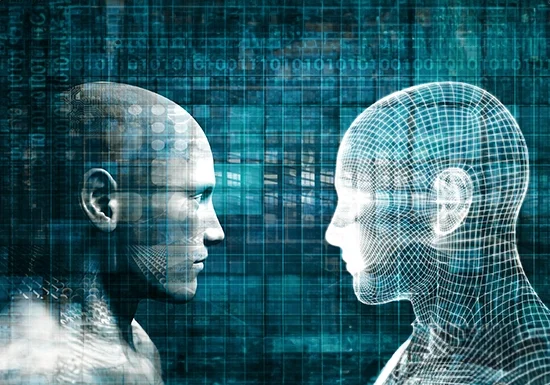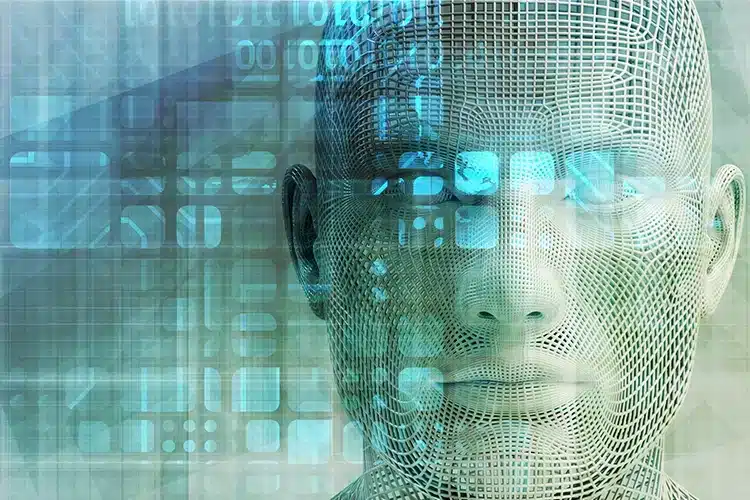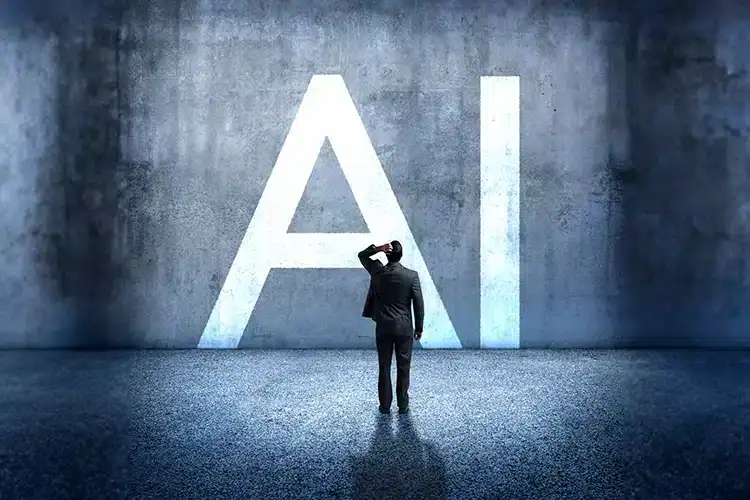What are AI Ethics? Why Do They Matter?
Updated: June 19, 2024
Published: April 9, 2024

As a college student, life can get busy. Between work, classes, and family obligations, you may not feel you have enough time to complete that essay or research paper. Would it be such a bad thing to let an artificial intelligence (AI) tool such as ChatGPT do your assignment? It’s an ethical question – one that AI ethics tries to answer.
With AI tools now ubiquitous, the ethics surrounding the use of this new technology have become a hot topic. Below we dive into some of the considerations to be aware of before you use AI for coursework or your job.

What are Ethics in AI?
Ethics in AI refers to the set of moral principles that govern the design, development, and deployment of artificial intelligence systems. AI ethics guidelines are meant to ensure that AI is used responsibly, ensuring the privacy of both data and users, eliminating bias, and not causing harm to society.
As AI tools have increased in their ability and availability, experts in the field have begun to discuss the need for boundaries to prevent unethical uses of the technology. There is currently no governing body overseeing AI, but many organizations have developed AI codes of ethics for their constituents.
Ethics as a navigational compass is nothing new; the fabric of society depends on people behaving in ways that are just, and fair, and respect the dignity of others. A code of ethics ensures a society where individuals work not only for their benefit but also for the greater good.
Without ethics, a myriad of consequences can result. In the business world, consumers can lose trust and abandon the company, causing financial ruin, or workplace harassment or negligence could arise. In a school setting, students would likely be expelled from their academic program, resulting in a loss of money, opportunity, and reputation.
Generative AI creates new content based on patterns it has learned from vast, existing datasets. This capability could lead to misinformation if the AI generates and disseminates plausible but entirely fabricated information or stories. Along the same lines, AI-generated art, music, and text could infringe on existing copyrights.
An issue that arises in academic settings is using AI to create work that isn’t your own. When AI is used to generate academic papers, articles, art, or other works, there’s a dilemma about the authenticity and originality of the output. Using AI to produce work without proper attribution or passing it off as one’s creation raises ethical concerns about academic integrity and intellectual honesty.
The Main Concerns Surrounding AI Ethics
Ethics surrounding AI attempt to address three of the biggest concerns: privacy and security, bias, and human rights.
Privacy and Surveillance
AI systems often rely on large amounts of data which can include personal information. There’s a risk that this data could be mishandled, leading to breaches of privacy. Moreover, AI can enhance the capabilities of surveillance systems, potentially leading to invasive monitoring without consent. In addition, AI systems can be vulnerable to hacks and malicious use, compromising both personal and national security.
Bias and Discrimination
AI systems can inherit biases from their training data, leading to unfair outcomes. This becomes an ethical problem if societal inequalities and discrimination are perpetuated among AI’s output across the healthcare, employment, and criminal justice sectors, among others.
Job Displacement
Automation through AI could disrupt labor markets and lead to significant job losses in certain industries. Besides leading to widespread unemployment, AI would disproportionately replace the jobs of lower-skilled workers, increasing income inequality. This creates a societal challenge, raising concerns about the fair distribution of the benefits and burdens of technological advancements.
An additional consideration is the sustainability and environmental impact of AI systems to ensure that their carbon footprint is minimized. Looking ahead, the long-term implications of AI require a continued ethical approach to safeguard a future where technology aligns with the best interests of humanity and the planet.

Four Stages of Ethical AI
There are four stages of ethical AI to be aware of as you experiment with this technology: data sourcing, data preparation, model training and deployment, and model evaluation by humans.
All four phases of the process are aimed at eliminating potential ethics issues from the output. During the “data sourcing” phase, it is important to ensure that the data the AI is using is collected responsibly, ensuring diversity and avoiding bias. During the “data preparation” phase, data preparers must ensure they clean and organize the data without compromising individual rights.
“Model training and deployment” involves creating AI models that are transparent and can be held accountable for their actions, ensuring they are aligned with ethical standards. Finally, when humans evaluate the model, they are reviewing AI’s output for fairness, accuracy, and adherence to ethical norms. Adjustments should be made as needed to align with societal values.
Why Are Ethics Important in AI?
Ethics in AI is crucial because, without oversight, AI can have a profound negative impact on society by compromising trust and safety, perpetuating discrimination, and affecting people’s livelihoods. The result would erode confidence in the technology, limiting the broader acceptance and application of AI solutions.
If ethical AI sounds like an interesting career choice, a degree in computer science might be a good next step. Computer science degrees provide the technical foundation necessary for understanding AI systems’ inner workings, which is critical for grasping the ethical implications of AI. It offers a structured approach to embedding ethics into AI education by exposing students to the potential biases, societal impacts, and responsible use of technology.
At UoPeople, you can earn an associate degree, a bachelor’s degree in computer science, or a master’s degree in information technology. You can also earn a certificate in either network and application security or data science.
All of UoPeople’s educational programs integrate discussions on AI ethics into the coursework, ensuring that graduates are not only technically proficient but also aware of the moral considerations that should guide the development and implementation of AI.
The key to ethical AI is to promote transparency about how AI systems make decisions and who is accountable for those decisions. This is particularly important in high-stakes areas like criminal justice, healthcare, and financial services, where AI decisions can have profound impacts on individuals’ lives.
To be sure, the ethical application of AI should be important to everyone, not just technical professionals. As AI becomes further entwined with our daily routines, the ethical ramifications demand that we ensure AI’s usage is contributing positively to societal norms and values.
As AI technologies advance, ethical considerations will help guide their development toward beneficial outcomes while avoiding potential risks and negative impacts on humanity. Ultimately, ethical considerations in AI form the backbone of a future in which technological progress enhances rather than diminishes the human experience, upholding our collective values and fostering a just and fair society.
